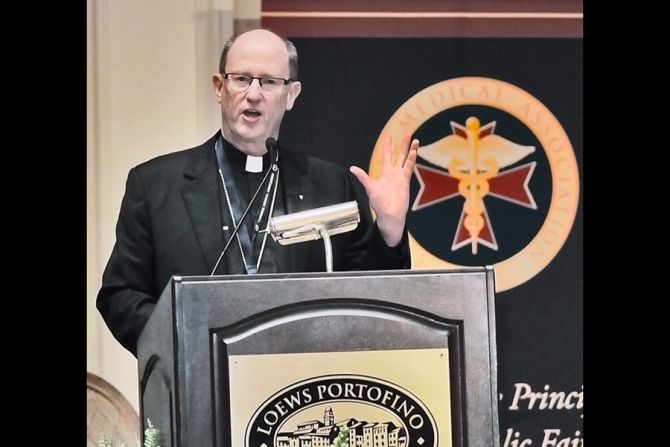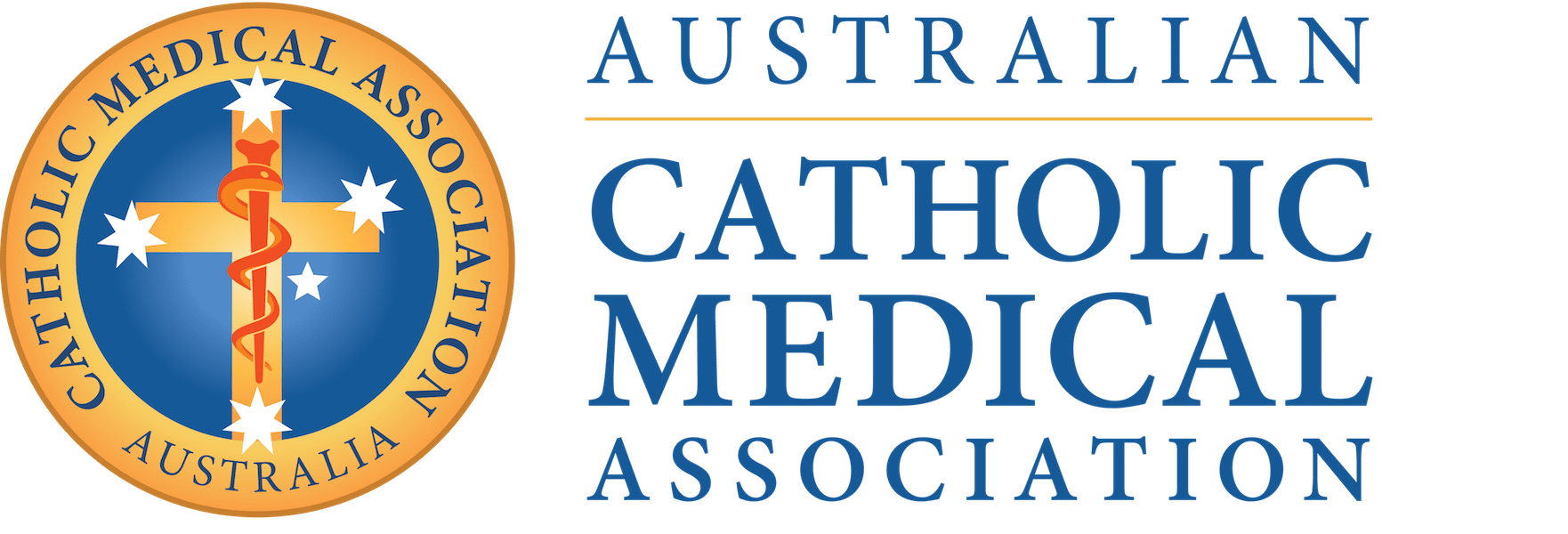Bishop Conley to Catholics in medicine: strive to be saints

Catholic medical professionals can lead other people to God by dedicating themselves to holiness and following the examples of saintly doctors, Bishop James D. Conley of Lincoln, Neb., said.
"Medical professionals are uniquely equipped to bring that love of God – by their compassion, their generosity, and in their very presence – to the souls who most need it," Bishop Conley told the Catholic Medical Association's educational conference in Orlando, Fla., on Saturday.
The bishop noted Pope Francis' call to the "peripheries": the poor, lonely, rejected, elderly, unborn, and "those who do not know the love of God."
The bishop, who is the association's episcopal moderator, told conference attendees that they can follow this call.
"Ultimately, your task is to become medical professionals who know that your work and your lives are not your own – medical professionals who have entrusted yourselves entirely to the Providence of God," he said Sept. 27.
The Catholic Medical Association's 83rd annual educational conference was dedicated to the theme, "Courage in Medicine: Defending and Proclaiming the Faith in the New Evangelization." About 600 people attended the conference.
Bishop Conley recounted the lives of holy medical doctors like St. Giuseppe Moscati, a heroic Italian doctor who cared for the material and spiritual welfare of his patients and colleagues; St. Gianna Molla, who sacrificed her life so that her unborn baby could be born; and Servant of God Jerome Lejeune, discoverer of the chromosomal abnormality that causes Down syndrome.
The bishop said these holy men and women are examples for the Catholic Medical Association's mission to form medical professionals who are "disciples of Jesus Christ" and who know they are "called to be saints."
"Becoming good and holy medical professionals requires becoming good and holy men and women; it demands that our lives are fundamentally defined in relationship to Jesus Christ, and to his Church," he said.
The bishop noted the difficulties facing medical professionals, including standards of care, "relativistic ethical systems," and social and professional pressure that compel doctors and nurses towards treatment that "that violates the fundamental dignity of the human person."
He stressed the importance of asking "whether we are personally pursuing discipleship of Jesus Christ in order to animate our lives and our work with love," whether we know the gifts of the Holy Spirit, and whether we are "missionary disciples of Jesus Christ" who use medical practice to "win souls for eternity."
Bishop Conley also posed practical questions for self-examination.
"Do we take our responsibilities to prayer? Do we, together, seek God's will for the Catholic Medical Association, for our practices, and for our families? Do we seek to form disciples, and to become them?"
He encouraged medical professionals to ask whether their efforts show the fruits of the Holy Spirit.
"The Holy Spirit is calling us on to goodness. Let us respond to that call. Let us seek the will of God together, and let us encourage our friends, our colleagues, and our patients to do the same," the bishop said.
